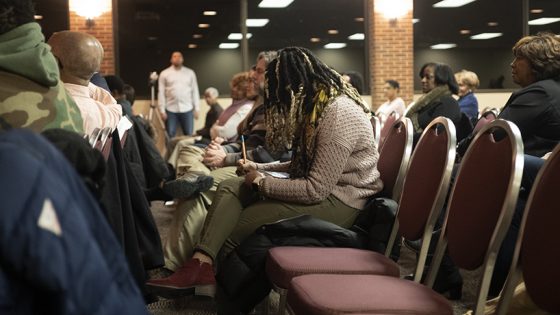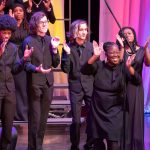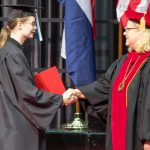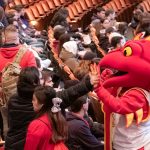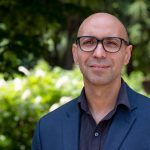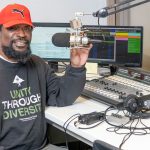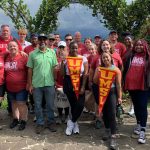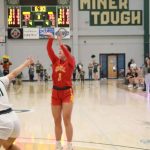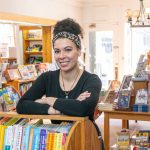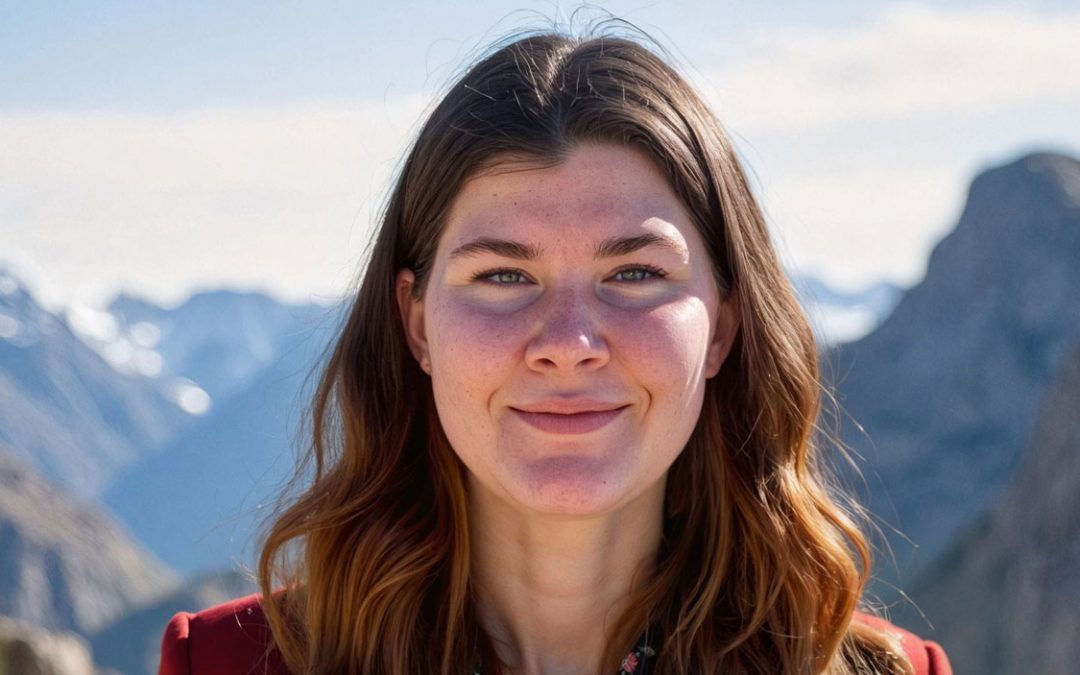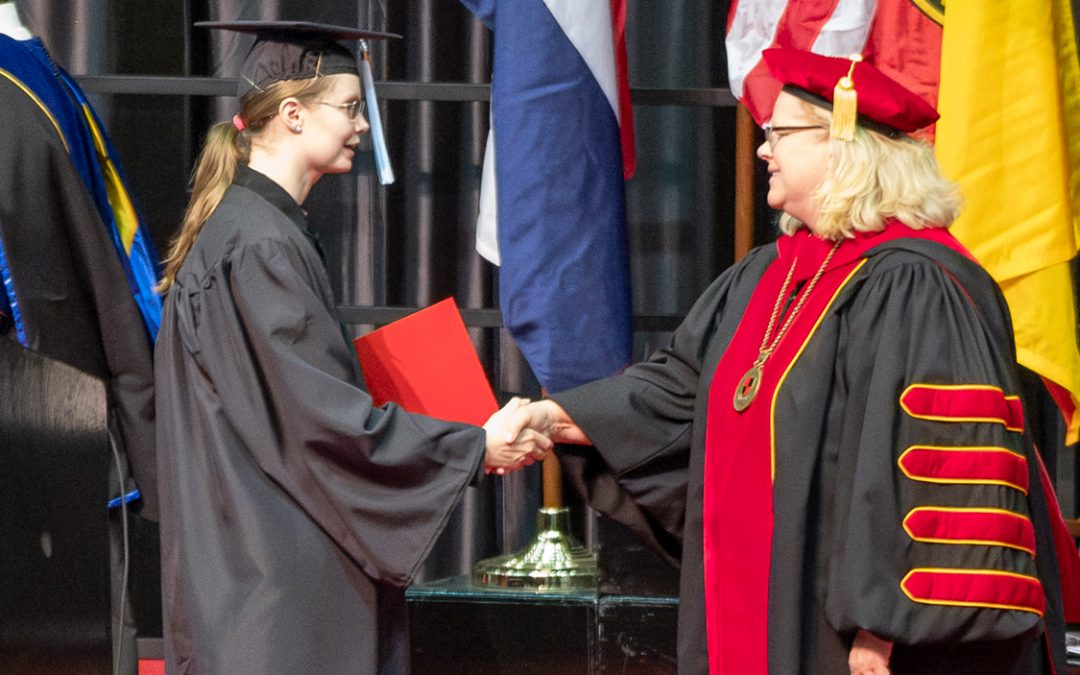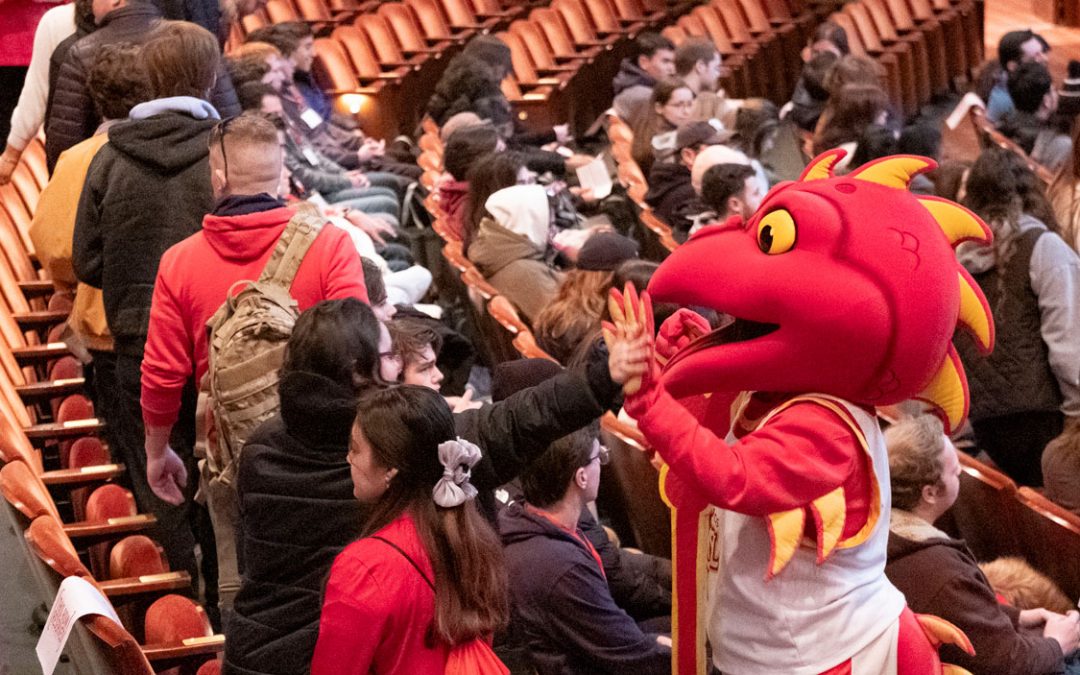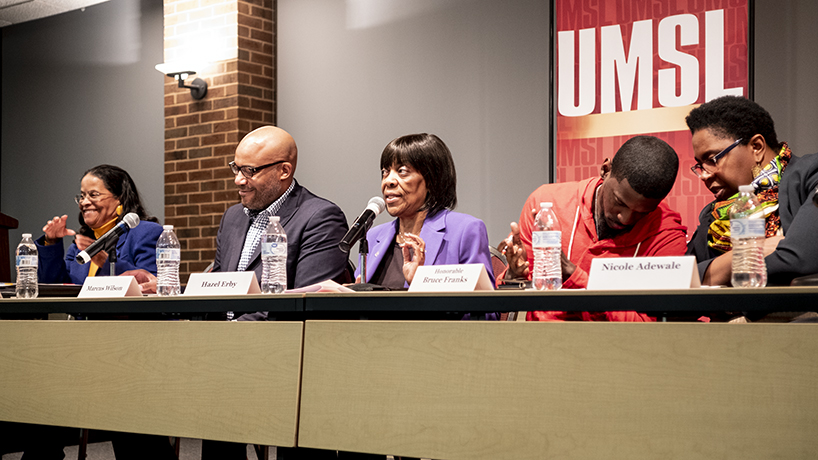
Speakers at the “Black in St. Louis: Sculpting our Future” community forum and panel discussed of youth outreach, employment and the Better Together city-county merger proposal among other topics and fielded questions in an audience Q&A. From left: Monica Huddleston, former mayor of the city of Greendale, Missouri; Marcus Wilson, executive director of the Monsanto Family YMCA; Rep. Hazel Erby, St. Louis County Council District 1; Rep. Bruce Franks, Missouri House of Representatives 78th District; and Nicole Adewale, founder of ABNA Engineering. (Photos by Jessica Rogen)
If you had 15 seconds to influence President Donald Trump, what would you say?
James Clark, community outreach director for Better Family Life, wasn’t sure he wanted to say anything at all. When he first learned he’d have the chance to meet the president, he was contemplating passing because of political differences.
Clark had just received an award at the Project Safe Neighborhoods conference for his gun violence de-escalation program, Neighborhood Alliance, when the invitation came to him. He went to bed that night wishing he’d had the opportunity during a different administration.
Then, he had a flash of inspiration.
“I generally don’t share this side of it, but I will,” Clark said. “God spoke to me, and he said, ‘James, I’ve never put you with the honor roll students. I’ve never put you with the choir boys. I’ve never put you with the upward bound. The last president wasn’t for you. I’ve always put you with those that needed guidance. James, this is the president for you.’”
When the day came in December, Clark waited in the group of increasingly nervous awardees and thought about what message the president needed to hear. Then he stepped up and was introduced.
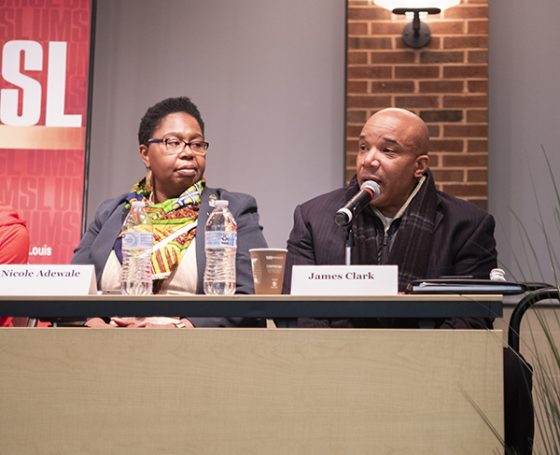
Nicole Adewale (left) and James Clark, community outreach director for Better Family Life, were two of the panelists featured during last Thursday’s event.
“‘Right now, America and the planet Earth need leaders on the principles of peace and love,’” he recalled saying. “That’s my 15 seconds with him. He said, ‘You know what, you’re right, you’re right.’”
Clark shared this story last Thursday as part of “Black in St. Louis: Sculpting our Future,” a community forum and panel discussion held at the University of Missouri–St. Louis as part of the university’s Black History Month programming. The event was presented by the African American Chapter of the UMSL Alumni Association in conjunction with the Associated Black Collegians.
The themes present in Clark’s story – putting community needs first, aiming to better society and fighting for representation – resounded through the room as the panelists debated how to improve the future of black lives in St. Louis through their discussion of youth outreach, employment and the Better Together city-county merger proposal, as well as an audience Q&A.
In addition to Clark, the panelists included Nicole Adewale, founder of ABNA Engineering; Rep. Hazel Erby, St. Louis County Council District 1; Rep. Bruce Franks, Missouri House of Representatives 78th District; Marcus Wilson, executive director of the Monsanto Family YMCA; and moderator Monica Huddleston, former mayor of the city of Greendale, Missouri.
The evening opened with a welcome from Linda Brown Reed, president of the African American Chapter of the UMSL Alumni Association, and panelist introductions by three UMSL students: communication junior Mariah Lindsey, psychology junior Chantel Cameron and psychology senior Jonice Langford, ABC president.
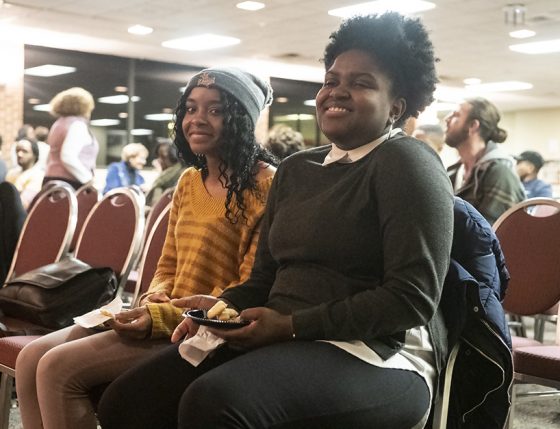
As they walked into the event, communication junior Mariah Lindsey (right) and psychology junior Chantel Cameron were asked to help introduce the panelists.
“I really loved the discussion,” said Lindsey. “They really went in-depth into mentalities about the culture of St. Louis and its history of segregation and just the black American experience here right now. I think I will look into ways for more action in terms of my own community, looking into voting more often locally. This really did inspire me to be more proactive overall.”
The panel kicked off with a discussion about ensuring youth success that circled around the question of resources: what was available and how to get them to the right people?
Erby pointed out no one person knew about every resource available, and that she, even as an elected official, was not aware of all the possibilities. She proposed a centralized index of services as a remedy.
Scaling services to fit the population was another challenge and goal, Adewale said, before the group pivoted to education.
Franks pointed out that STEM – science, technology, engineering and math – careers were the jobs of the future but that he viewed getting resources to currently unemployed workers as a big part of the solution. He tasked the group with outreach even into “the cracks and crevices of our community that might make us uncomfortable.” Talking to people and empowering them with education about the political process, in his opinion, was key.
“I came into politics not knowing about politics,” Franks said. “That’s how I decided to run.”
Attitudes toward voting have changed, Huddleston noted, recalling how excited she was to register as a voter at 18.
“I don’t think we tell (the youth) enough about what we endured to get where we are today,” she said. “It’s all about what you want to do and what interests you.”
Wilson agreed, noting that, while the presidential race galvanized voters, other elections suffered from low turnout.
Though politics was also in the forefront of the discussion of Better Together, Adewale cautioned the audience not to only rely on their elected officials while evaluating the proposal.
“Our country was founded on ‘no taxation without representation,’” Adewale said. “The question is are we going to be adequately represented? I don’t know the answer to that question, but I certainly intend to find out.”
The panel was almost uniformly against the proposal with Adewale and Wilson advocating for further interrogation.
“Do not just listen to what a few people have to say, one or two soundbites,” said Wilson. “Go out and research for yourself.”
The group was concerned about the stealth and speed with which the proposal had been adopted, the interests of its wealthy originator Rex Sinquefield and the fact that it doesn’t address education. They feared that black voting power would be diluted because, as Wilson noted, the minority population would go from 52 in the current city to 30 percent in a unified St. Louis and black political representation would be markedly diminished.
“I am not in favor of a merger at all,” said Erby. “The Better Together plan is a slap in the face of democracy. It robs us of our rights to vote for what is best for us and our community. Why should we be forced to accept a form of government created by a rich, exclusive group of individuals who were not elected by the people? We did not have a seat at the table; they didn’t ask any of us to participate, to draft the plan. We will not go backwards.”

